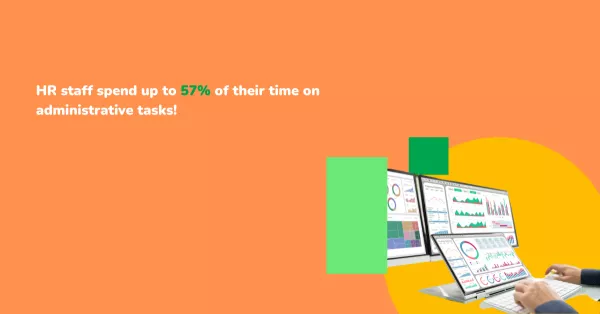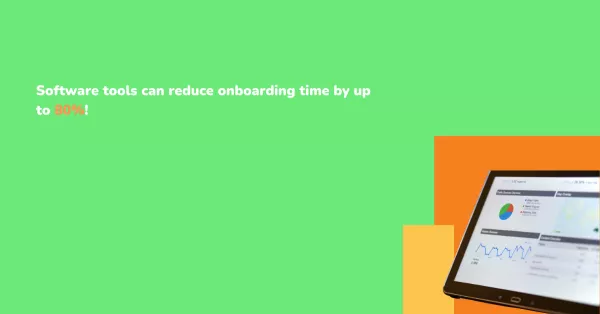Managing human resources in a small business comes with unique challenges. With limited resources and smaller teams, handling tasks like hiring, payroll, compliance, and employee management can quickly become overwhelming. Unlike larger companies with dedicated HR departments, small businesses often rely on manual processes, spreadsheets, or disconnected systems, leading to inefficiencies and errors.
This is where HR software plays a crucial role, the advantages of using an HRMS for a small business cannot be valued. By automating essential HR tasks, businesses can save time, reduce administrative burdens, and improve accuracy in managing employee records, payroll, leave requests, and more. A well-integrated system helps streamline processes, ensuring compliance with labor laws and enhancing overall workforce efficiency.
The need for human resource software is growing as small businesses recognize the importance of structured HR management. Moving beyond paper-based records or basic spreadsheets allows for better decision-making, improved employee experience, and more scalable operations. Whether it’s tracking time and attendance, managing employee benefits, or simplifying recruitment, adopting the right technology can significantly impact business success.
What is Human Resource Management Software?
IT is a comprehensive digital tool designed to streamline and automate various HR tasks within an organization. Whether you’re managing employee records, payroll, or compliance, this software consolidates all HR-related functions into one platform, making them more efficient and less prone to errors. By implementing human resource software, businesses, especially small ones, can reduce administrative burdens and free up time for more strategic activities.
At its core, HR software offers a centralized system for managing employee information, including personal details, job roles, performance reviews, and training records. It simplifies many of the repetitive, time-consuming tasks that typically require manual effort, such as scheduling, tracking work hours, and handling benefits administration. With automation built into the system, routine HR activities are handled seamlessly, ensuring consistency and accuracy in the process.
Additionally, HR software features often include tools for payroll management, tax compliance, recruitment, and performance tracking. These features enable businesses to stay up-to-date with the latest labor laws, process payroll accurately, and manage employee performance in a way that aligns with the company’s objectives. The software also facilitates onboarding new hires, managing employee time-off requests, and ensuring the company remains compliant with local regulations.
By integrating human resource software into your operations, you gain a more organized, data-driven approach to managing your workforce. Whether your team is small or growing rapidly, the right HR software solution can scale with you, offering the flexibility needed to meet your unique business needs. It provides clarity, eliminates inefficiencies, and empowers you to focus on what truly matters, building a productive and motivated team.
Common HR Challenges in Small Businesses

Running a small business comes with its own set of challenges, and managing human resources is no exception. As your business grows, HR tasks quickly become more complex and time-consuming. Without the right systems in place, it’s easy for HR processes to become inefficient, leaving room for errors and compliance risks. Here are some of the common HR challenges faced by small businesses:
Manual HR Inefficiencies
One of the biggest challenges for small businesses is relying on manual processes or outdated systems. Many small businesses still manage employee records, payroll, and time tracking using spreadsheets or paper-based methods. This approach often leads to inefficiencies, as data must be manually entered, tracked, and updated, creating room for human error. HR software helps eliminate these inefficiencies by automating routine HR tasks, allowing you to focus on more strategic areas of the business. It centralizes all HR data, providing easy access to up-to-date information, which reduces the risk of mistakes and ensures everything is accurately tracked.
Compliance Risks
Staying compliant with labor laws, tax regulations, and employee benefits requirements is a constant concern for small businesses. Navigating complex regulations can be overwhelming, especially when you’re trying to handle it manually. Human resource software plays a vital role in ensuring compliance by automating calculations and staying updated with changing laws. It can help you manage employee contracts, track work hours, and ensure proper tax deductions are made, reducing the risk of penalties due to non-compliance.
Recruitment and Retention Struggles
Finding and retaining the right talent is a major concern for small businesses. With limited resources, it can be difficult to attract top candidates or offer the competitive benefits and pay that larger companies can. Human resource software for small business streamlines the recruitment process by automating candidate tracking, scheduling interviews, and managing job postings. This allows you to focus more on the selection process and less on administrative tasks. In addition, performance tracking and career development features can help improve employee retention by identifying areas for growth and keeping your team engaged.
Payroll, Benefits, and Performance Management Challenges
Managing payroll and employee benefits can become a complicated and time-consuming task, especially as the workforce expands. Ensuring that employees are paid correctly and that benefits are properly administered requires precision and attention to detail. The software features automate payroll processing, tax deductions, and benefits enrollment, ensuring accuracy and timely distribution. Performance management can also become a challenge, as monitoring employee progress and development may feel overwhelming without the right tools. With the software, you can set clear performance goals, track progress, and offer feedback, creating a more structured approach to employee development.
Transitioning from Spreadsheets to Software
Many small businesses start with spreadsheets and manual systems to handle HR tasks, but as the business grows, this approach becomes increasingly ineffective. Moving from a manual system to human resource software for small business can be a daunting task, but it is a necessary step for scalability. This transition ensures that HR data is stored securely, employees are managed more efficiently, and you can access important insights that drive better decision-making. While the shift to digital may seem challenging, the long-term benefits of HR automation far outweigh the initial learning curve.
Key HRM Software Features
When selecting the right software for your small business, it’s essential to understand the core features that will drive the most value. The right HR software solution can transform your business operations by streamlining key tasks, improving efficiency, and ensuring compliance with relevant laws. Here are the key features that will help take your business to the next level:
Employee Records Management
One of the most fundamental aspects is its ability to store and manage employee records in a centralized, digital format. Gone are the days of dealing with paper files or clunky spreadsheets. This feature allows you to keep detailed records of each employee’s personal information, job history, compensation, and benefits. By having everything in one place, you can quickly access any employee’s data when needed, without the risk of misplacing or losing important documents.
Payroll Management
Accurate payroll processing is critical to maintaining employee satisfaction and ensuring compliance with tax laws. Human resource software automates payroll calculations, ensuring that employees are paid accurately and on time. It also takes into account factors like tax deductions, benefits, and overtime, reducing the chances of errors. Furthermore, it can generate payroll reports that make tax filing easier and more straightforward, saving you time and minimizing the risk of costly mistakes.
Time Tracking and Attendance Management
Managing employee time and attendance can be complex, especially if your workforce is diverse or operates in shifts. Human resource software includes time tracking features that help you monitor attendance, clock-in/clock-out times, and overtime. This feature reduces the need for manual tracking, allowing you to keep accurate records of employee hours worked. With real-time data, you can identify attendance trends, manage scheduling conflicts, and ensure that employees adhere to your company’s policies.
Performance Management
Tracking and improving employee performance is essential for business growth. It helps you set clear performance goals for each employee and monitor progress over time. By creating regular performance reviews and feedback mechanisms, you can ensure that employees are meeting expectations and receiving the support they need to develop in their roles. This feature helps foster a culture of accountability, motivation, and continuous improvement, which is essential for a growing business.
Recruitment and Onboarding
Hiring the right talent is crucial for your business, and human resource software for small business can streamline this process. With automated recruitment features, you can post job openings, manage applications, and track candidates all in one place. Additionally, the onboarding feature helps new hires get up to speed quickly, ensuring that they have the necessary tools, access, and training to succeed from day one. The software can also handle essential documentation, ensuring compliance with hiring laws and saving time during the onboarding process.
Benefits Administration
Managing employee benefits can be an intricate task, but human resource software simplifies it by automating the process. From health insurance to retirement plans, HR software helps track enrollment, updates, and employee contributions. It ensures that employees are enrolled in the correct benefits plans and that all changes are reflected in real-time. This feature helps both you and your employees avoid confusion and ensures compliance with regulations governing employee benefits.
Compliance and Reporting
Staying compliant with labor laws and regulations is essential, especially as your business grows. The features often include built-in compliance tools that help you stay up to date with local, state, and federal requirements. This feature can automatically track important deadlines, such as tax filings, employee certifications, and benefit enrollments, to prevent any legal issues. Furthermore, the software can generate reports that give you insights into your business’s HR metrics, such as employee turnover rates, hiring trends, and performance data.
Employee Self-Service Portal
A self-service portal is another valuable feature of human resource software. It allows employees to access and update their own personal information, request time off, view pay stubs, and track their benefits. By giving employees more control over their HR-related tasks, you not only reduce administrative burdens but also empower them to manage their own information, leading to greater satisfaction and transparency within the workplace.
Scalability
As your business grows, your HR needs will evolve. The scalability means that it can adapt to accommodate an expanding workforce and more complex HR processes. Whether you need to add new modules, increase the number of users, or customize workflows, the right HR software will grow with your business, ensuring long-term value and flexibility.
Benefits of Human Resource Software for Small Businesses

Adopting human resource software for your small business offers numerous advantages that can enhance efficiency, reduce costs, and create a better working environment for your team. Whether you're automating basic tasks or using more advanced features, HR software can dramatically improve your business operations. Let’s explore some of the key benefits of using human resource software for small business.
Time and Cost Savings
One of the primary reasons to invest in human resource software is the significant time and cost savings it brings. Manual processes, such as tracking employee hours, processing payroll, or handling benefits administration, can be time-consuming and prone to error. By automating these tasks with HR software, you eliminate the need for manual data entry and reduce the time spent on routine HR activities. This allows your team to focus on more strategic tasks, such as employee development and business growth.
Additionally, automating HR processes reduces the risk of errors, which could lead to costly mistakes such as overpayment, missed deadlines, or compliance issues. By ensuring that HR tasks are accurate and timely, HR software saves you both time and money, which can be crucial for a small business with limited resources.
Improved Data Accuracy
The accuracy of employee records and payroll data is critical for small businesses. They centralize all employee information, ensuring that all data is accurate, up-to-date, and easily accessible. With features like automatic payroll calculation and tax deductions, the risk of errors is significantly reduced, leading to fewer compliance issues and financial discrepancies. Real-time updates also ensure that everyone, from managers to employees, has access to the most current information without having to sift through outdated files or spreadsheets.
Streamlined Compliance Management
Compliance with labor laws and regulations is a significant concern for small businesses. Human resource software can help ensure that your business adheres to the latest legal requirements, reducing the risk of penalties and lawsuits. Whether it’s tracking employee working hours, managing overtime, or maintaining proper documentation, HR software ensures that your business stays compliant with local, state, and federal labor laws.
The software can automate key compliance tasks, such as generating accurate tax forms and ensuring that benefits are administered according to regulatory guidelines. By integrating these compliance features, HR software gives you peace of mind and frees you from worrying about staying up-to-date with ever-changing laws.
Better Employee Experience
Employee satisfaction is crucial to the success of any business. Human resource software improves the employee experience by providing them with easy access to important HR information through self-service portals. Employees can manage their personal details, request time off, view their pay stubs, and access benefits information whenever they need it, without having to go through HR personnel.
This level of transparency and control empowers employees to take charge of their own HR-related tasks, resulting in higher satisfaction and engagement. When employees feel that their needs are being addressed efficiently and transparently, it fosters a positive work culture and can lead to greater retention.
Enhanced Recruitment and Retention
The recruitment process can be time-consuming, especially for small businesses without dedicated HR teams. Human resource software for small business streamlines this process by automating tasks such as posting job openings, tracking applicants, and managing interview schedules. The software helps you find the right candidates faster and ensures that you don't miss out on top talent due to inefficient processes.
Beyond recruitment, human resource management software also supports employee retention. By using performance management tools, you can track employee progress, offer timely feedback, and identify areas for development. This approach helps you create personalized development plans for your employees, fostering a culture of growth and engagement that keeps employees motivated and committed to your company.
Scalability for Growth
As your business grows, so will your HR needs. One of the greatest advantages of human resource software is its scalability. Whether you're adding new employees or expanding your HR functions, HR software can easily adapt to meet your changing needs. You can integrate new features, such as advanced reporting or additional modules, as your business grows, ensuring that you can continue to manage HR tasks efficiently.
The ability to scale HR functions ensures that as your company evolves, your HR system remains capable of handling the increasing complexity and volume of data. This flexibility allows your business to continue to operate smoothly and without interruption, even as it grows.
Better Decision-Making with Analytics
Data is a powerful tool for making informed decisions. Human resource management software features often include analytics and reporting capabilities that provide you with valuable insights into your workforce. You can track key metrics such as employee turnover rates, attendance trends, performance levels, and engagement scores. This data helps you identify patterns and areas for improvement, enabling you to make proactive decisions that align with your business goals.
Whether you're looking to reduce turnover, improve performance, or make data-driven changes to your HR processes, HR software gives you the tools you need to make better decisions based on real-time data. The ability to leverage data not only improves HR operations but also helps you align your workforce with the long-term goals of your business.
Why OrangeHRM?
OrangeHRM offers a comprehensive human resource management software solution designed to meet the unique needs of small businesses. With its scalable features, OrangeHRM grows alongside your business, allowing you to manage HR tasks efficiently, no matter the size of your workforce. The platform provides a centralized system for everything from attendance management to recruitment and performance tracking. With OrangeHRM, you can streamline HR processes without the need for complex systems or extra resources, making it the ideal choice for small businesses looking for a cost-effective and adaptable solution. Book your FREE demo to find out more.
